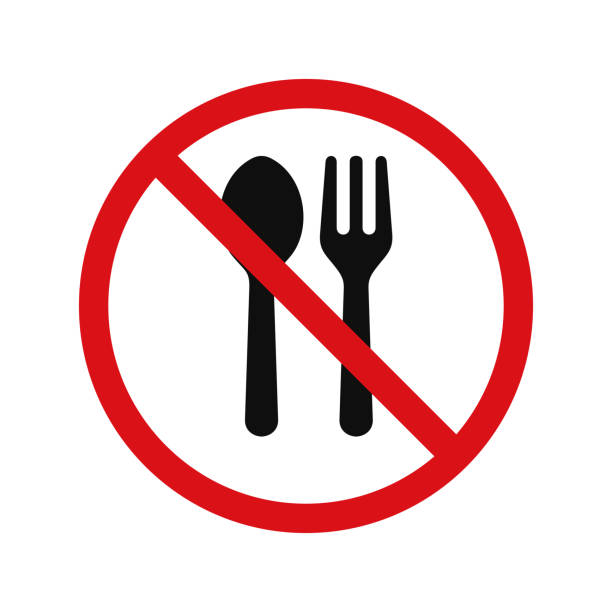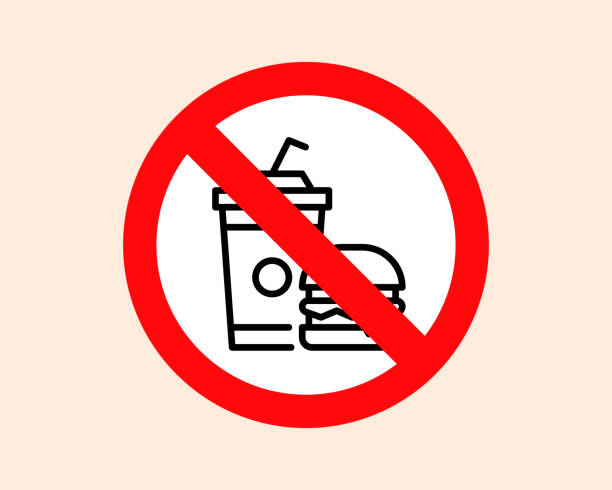Kinds of Diets, What to Eat and Drink
Unveiling the Top Dietary Restrictions
Dietary restrictions are becoming more frequent in today’s diversified gastronomic scene as people try to manage a variety of health issues, adhere to cultural or religious convictions, or satisfy personal preferences.
These limits can include a wide range of dietary patterns, from avoiding certain food groups such as gluten or dairy to adhering to rigorous plant-based or ketogenic diets. Understanding the basic dietary restricitons that exist in society is critical for encouraging inclusion and raising awareness of varied dietary demands. Individuals who investigate these dietary restricitons and their implications can make more informed food choices, help people with dietary restrictions, and foster a more inclusive and understanding food culture overall.

Types of Dietary Restrictions
Dietary restrictions are used for a variety of reasons. Here are some of the most popular ones:
Vegetarianism
Vegetarianism is a dietary restriction in which individuals avoid eating meat, poultry, and fish. However, some vegans may eat eggs and dairy products. This type of diet is commonly used for ethical, environmental, or health reasons. Vegetarians may need to monitor their protein and iron intake to ensure they are getting adequate nutrition.
Veganism
Veganism is similar to vegetarianism, but it excludes all animal products, such as eggs, dairy, and honey. People choose a vegan diet for ethical and environmental grounds. Vegans may need to supplement their diets with vitamin B12, which is primarily found in animal sources.
Pescetarianism
Pescetarianism is a dietary restriction in which people eschew meat and poultry while still eating seafood. This diet is commonly followed for health reasons, as seafood is high in omega-3 fatty acids. However, pescetarians should be cautious about their mercury intake from specific species of fish.
Paleo and Keto Diets
The Paleo and Keto diets are popular low-carb, high-fat diets that limit specific dietary groups. The Paleo diet emphasizes entire foods and avoids grains, legumes, and dairy. The Keto diet is similar but restricts carbohydrates to promote ketosis. Both diets are commonly used for weight reduction and health purposes. However, persons following these diets may need to monitor their nutritional consumption and ensure they are getting adequate fiber.
Overall, people adhere to different forms of dietary restrictions for a variety of reasons. It is critical to contact a healthcare practitioner or qualified dietitian to ensure that you are consuming enough nutrients and eating a balanced diet.

Common Allergens and Intolerances
Several common allergies and intolerances may necessitate dietary restrictions. These include lactose intolerance, gluten sensitivity, celiac disease, and nut and peanut allergies.
Lactose Intolerance
Lactose intolerance is a digestive condition in which the body cannot digest lactose, a sugar found in dairy products. This can result in symptoms like bloating, gas, and diarrhea. People who are lactose intolerant may need to avoid or limit their dairy consumption or utilize lactose-free alternatives.
Gluten Sensitivity and Celiac Disease
Gluten sensitivity and celiac disease are both immunological responses to gluten, a protein present in wheat, barley, and rye. Celiac disease is a more severe form of gluten sensitivity that can harm the small intestine and result in a variety of symptoms such as diarrhea, stomach pain, and exhaustion. People with celiac disease must completely avoid gluten, however others with gluten sensitivity may be able to tolerate modest quantities.
Nut and Peanut Allergies
Nut and peanut allergies are among the most prevalent food allergies, and they can result in severe and potentially fatal reactions. People with these allergies must avoid all nut and peanut products and may need to carry an epinephrine auto-injector in case of an emergency. When dining out, read food labels carefully and be cautious of cross-contamination hazards.
Overall, those with dietary restrictions should carefully plan their meals to ensure they are getting all of the necessary nutrients. Consulting with a qualified dietitian can help you build a safe and balanced food plan.

Religious and Cultural Dietary Practices
Many religions and societies have food customs that reflect their beliefs and traditions. These activities may be influenced by religious teachings, societal norms, or health concerns. In this part, we’ll look at two common religious diets: Kosher and Halal.
Kosher Diet
Jews follow the Kosher diet. The term “kosher” means “fit” or “proper” in Hebrew. The Kashrut regulations included in the Torah, the Jewish sacred book, serve as the foundation for the Kosher diet. These laws specify which foods can and cannot be eaten, as well as how they should be prepared and consumed.
Some of the major rules of the Kosher diet are:
- Only cows, sheep, and goats can be eaten. Pork, shellfish, and other animals are prohibited.
- Meat and dairy items cannot be ingested simultaneously. Meat and dairy must be served on separate utensils and dishes.
- Gelatin and other animal-derived items are not permitted.
- Fruits and vegetables are termed “pareve,” which means they can be consumed alongside meat and dairy.
The Kosher diet is both religious and cultural. Many Jews follow the Kosher diet as a way to reconnect with their roots and customs.
Halal Diet
Muslims follow the Halal diet. “Halal” means “permissible” in Arabic. The Halal diet adheres to Islamic regulations as outlined in the Quran, the Muslim sacred book. These laws specify which foods can and cannot be eaten, as well as how they should be prepared and consumed.
Some of the major rules of the Halal diet are:
- Only cows, sheep, and goats can be eaten. Pork and other animals are not permitted.
- Meat must be slaughtered in a precise manner, and Allah’s name must be chanted during the operation.
- Alcohol and other intoxicants are not permitted.
- Utensils and plates must be clean and clear of any signs of non-Halal food.
The Halal diet is both religious and cultural. Many Muslims follow the Halal diet as a way to reconnect with their roots and customs.
To summarize, the Kosher and Halal diets are two common religious diets with tight rules.

Health-Related Dietary Restrictions
Heart Disease and High Blood Pressure
Heart disease and high blood pressure are among the most prevalent chronic diseases in the United States. The American Heart Association states that a good diet can help prevent and treat certain illnesses. People with heart disease and high blood pressure should reduce their consumption of saturated and trans fats, cholesterol, and sodium. They should also focus on eating foods high in fiber, potassium, and magnesium.
Examples of heart-healthy foods are:
- Fruits and veggies.
- Whole grains
- Lean proteins, such as fish and poultry.
- Low-fat dairy products.
Individuals with heart disease and excessive blood pressure should also exercise on a regular basis. Exercise can help lower blood pressure, improve cholesterol levels, and lower your risk of heart disease.
Diabetes Management
Diabetes is a chronic condition that alters the way the body handles blood sugar (glucose). This condition requires careful attention to diet. Individuals with diabetes should eat meals abundant in fiber, vitamins, and minerals but low in saturated and trans fats, cholesterol, and sodium. They should also minimize their use of sugary foods and drinks.
Some examples of diabetes-friendly foods are:
- Non-starchy veggies, such as broccoli and spinach.
- Whole grains, including brown rice and quinoa
- Lean proteins, like chicken and fish
- Low-fat dairy products.
It is also critical for diabetics to maintain regular physical activity. Exercise can help regulate blood sugar, lower the risk of heart disease, and enhance general health.
Cancer Prevention
While food cannot prevent cancer, it can help lower the chance of developing specific types of cancer. According to the American Cancer Society, people should eat a mix of fruits, vegetables, whole grains, and lean meats. They should also reduce their use of processed and red meats, sugary foods and beverages, and foods high in saturated and trans fat.
Examples of cancer-fighting foods are:
- Berries, including blueberries and strawberries.
- Cruciferous vegetables, including broccoli and cauliflower
- Whole grains, including brown rice and quinoa
- Lean proteins, like chicken and fish
Individuals should also exercise on a regular basis. Exercise can help lower the risk of certain types of cancer, enhance general health, and maintain a healthy weight.
Conclusion
To summarize, overcoming dietary restrictions can bring both obstacles and possibilities for people looking to preserve their health and well-being. Individuals who understand the common dietary constraints covered in this article can make more informed decisions about their food choices and lifestyles. Each constraint, whether it is avoiding certain allergens, adhering to religious dietary rules, or adopting a specific dietary philosophy, has its own set of factors that must be addressed and respected.
Embracing diversity in dietary preferences and encouraging open communication about food limitations can promote inclusivity, assist persons with special needs, and ultimately contribute to a more harmonious and understandable food culture. We can establish environments that accommodate varied food preferences and encourage individuals to succeed on their health journeys by educating, empathizing, and being flexible.
Trusted Health, Wellness, and Medical advice for your well-being


